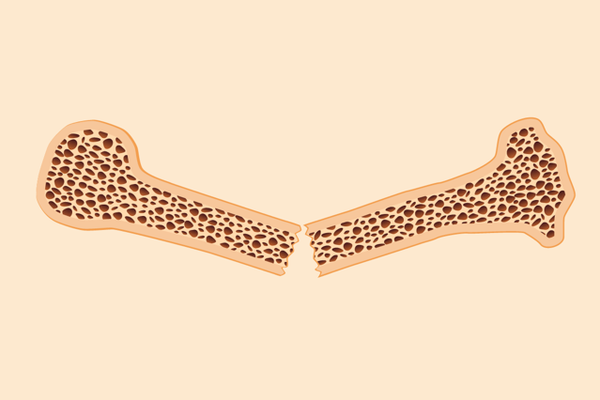Q:
I have just been diagnosed with osteopenia. What is this? I am about to begin post-breast cancer treatment with the aromatase inhibitor Arimidex, which I understand will increase my chance of bone loss. Any information would be appreciated.
A:
Osteopenia refers to low bone density, a condition that affects about 34 million Americans. It puts you at a higher risk for osteoporosis. Osteoporosis is a condition of weak and fragile bones, leading to fractures. Both are related to the way bone is broken down and built back up, a process called "remodeling." Certain cells break down bone to release calcium and other minerals; other cells build it back up. The hormone estrogen plays a major role in this rebuilding process. After age 30, however, bone breaks down faster than it builds up. And once you reach menopause and for several years afterward, the rate of breakdown increases.
As a breast cancer survivor, you have a higher risk of osteoporosis, because many hormonal treatments used to prevent the cancer's return reduce the amount of estrogen in your body, which serves as a kind of "fuel" for cancer cells in some cancers. Reducing the amount of available estrogen can slow or even prevent the cancer's growth.
Two primary classes of drugs are used for estrogen-positive cancers: an anti-estrogen like tamoxifen, or an aromatase inhibitor like Arimidex (anastrozole), which your doctor prescribed. Aromatase inhibitors work by preventing the action of the aromatase enzyme, which is required for estrogen production. Unfortunately, since estrogen is also important in maintaining bone density, inhibiting its production can negatively affect your bones. Your existing osteopenia, coupled with the effects Arimidex will likely have on your bones, could put you in serious danger of developing osteoporosis.
The good news is that we have several treatments available today to help maintain and even improve bone density. Bisphosphonates, a class of drugs including Fosamax (alendronate) and Actonel (risedronate) that is used in the treatment of osteoporosis, have proven at least as effective as hormone therapy for this purpose. So talk to your doctor about the possibility of starting on one of these medications along with the Arimidex.
- Staying Fracture-Free ›
- I Have Postmenopausal Osteoporosis: What I Wish I Had Known When I Was 40 ›
- Women and Bone Health Basics ›
- It Wasn’t Muscle Damage: It Was Four Fractures and Osteoporosis ›
- Taking on Mountains — and Osteoporosis ›
- Simple Ways to Improve Bone Health - HealthyWomen ›






